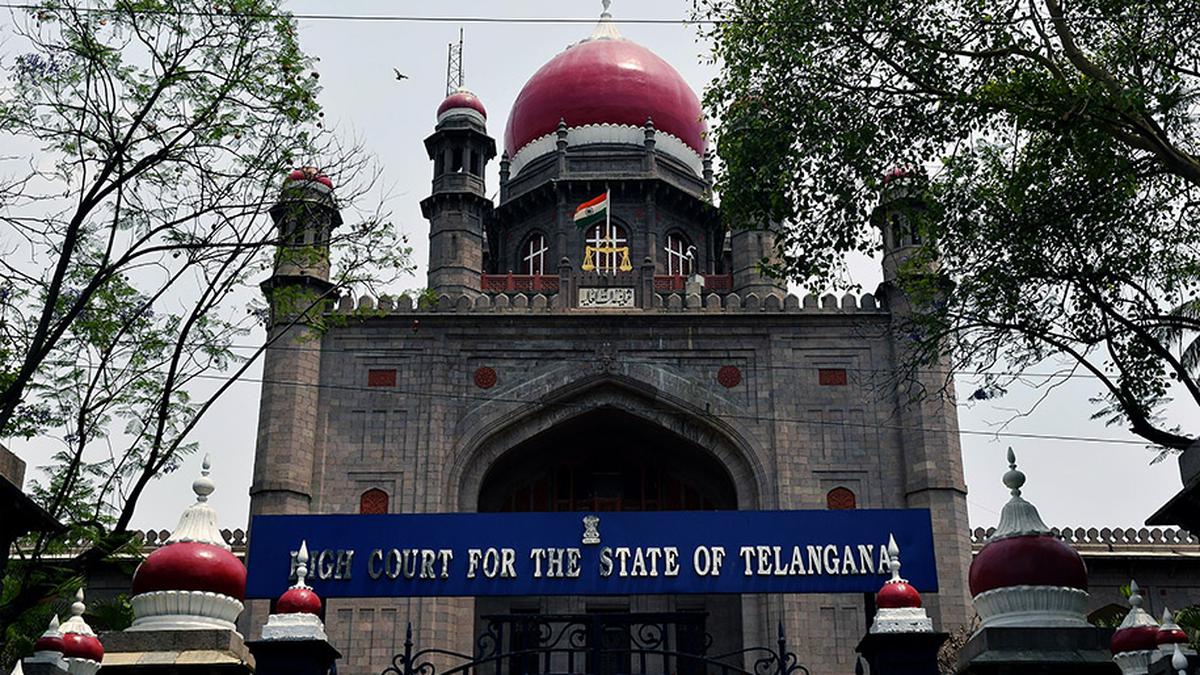
HC dismisses pleas challenging 100% domicile reservation in medical colleges
The Hindu
Pronouncing verdict after hearing pleas filed by students from different parts of Andhra Pradesh, HC Bench says decision of apex court in Pradeep Jain case would not apply to Telangana.
Telangana High Court on Monday dismissed a batch of writ petitions challenging the Telangana government’s decision to reserve 100% seats in MBBS/BDS courses for ‘locals’ (domicile candidates) in ‘competent authority quota’ in medical colleges established in the State after June 2, 2014.
A Bench of Chief Justice Alok Aradhe and Justice N.V. Shravan Kumar, pronouncing the verdict after hearing the pleas filed by students from different parts of Andhra Pradesh, said the decision of the Supreme Court in Pradeep Jain case would not apply to the State of Telangana. The Bench noted that the decisions of the apex court in the matters of Chebrolu Leela Prasad Rao and Satyajit Kumar “are authorities for the proposition that 100% reservation in the matter of employment is violative of the constitutional guarantee contained in Article 16 of the Constitution of India”.
The Bench, however, made it clear that the present batch of pleas questioning reservation in MBBS/BDS seats “is not a case of 100% reservation as only 85% of competent authority quota seats in respect of educational institutions which have been set up after formation of the State, i.e., June 2, 2014 had been reserved for the candidates of State of Telangana”. The Bench said reservation to the extent of 100% for local candidates in Telangana by amending Telangana Medical & Dental Colleges Admission (Admission into MBBS & BDS Courses) Rules, 2017 as contended by the petitioners “had not been provided”.
The Bench recalled the submission of Advocate General B.S. Prasad that the students of all other States, including Andhra Pradesh, can secure admissions in the 15% of the competent authority quota seats. It instructed the State government, in the backdrop of the AG’s above submission, that the said provision should be made in the seat matrix notified by Kaloji Narayan Rao University of Health Sciences.
The petitioners appeared for the NEET UG 2023 on May 7. While the results were declared on June 13, the Telangana government amended the Medical Colleges Admission Rules-2017 providing 100% reservation to candidates hailing from Telangana in the 85% of competent authority quota.
Challenging the amendment of the Rules through G.O. 72, the petitioners knocked at the doors of the HC. Some of them filed a writ petition in Supreme Court under Article 32 of the Constitution of India. The apex court, however, dismissed the plea.
Referring to the contentions of the petitioners that G.O. 72 violated Section 95 of the AP Reorganisation Act, the Bench observed that the successor States of Telangana and Andhra Pradesh should “maintain existing admission quotas’’ for a period of 10 years. The Bench said that Section 95 cannot be applied to seats in educational institutions that were constituted after June 2, 2014.

“Writing, in general, is a very solitary process,” says Yauvanika Chopra, Associate Director at The New India Foundation (NIF), which, earlier this year, announced the 12th edition of its NIF Book Fellowships for research and scholarship about Indian history after Independence. While authors, in general, are built for it, it can still get very lonely, says Chopra, pointing out that the fellowship’s community support is as valuable as the monetary benefits it offers. “There is a solid community of NIF fellows, trustees, language experts, jury members, all of whom are incredibly competent,” she says. “They really help make authors feel supported from manuscript to publication, so you never feel like you’re struggling through isolation.”

Several principals of government and private schools in Delhi on Tuesday said the Directorate of Education (DoE) circular from a day earlier, directing schools to conduct classes in ‘hybrid’ mode, had caused confusion regarding day-to-day operations as they did not know how many students would return to school from Wednesday and how would teachers instruct in two modes — online and in person — at once. The DoE circular on Monday had also stated that the option to “exercise online mode of education, wherever available, shall vest with the students and their guardians”. Several schoolteachers also expressed confusion regarding the DoE order. A government schoolteacher said he was unsure of how to cope with the resumption of physical classes, given that the order directing government offices to ensure that 50% of the employees work from home is still in place. On Monday, the Commission for Air Quality Management in the National Capital Region and Adjoining Areas (CAQM) had, on the orders of the Supreme Court, directed schools in Delhi-NCR to shift classes to the hybrid mode, following which the DoE had issued the circular. The court had urged the Centre’s pollution watchdog to consider restarting physical classes due to many students missing out on the mid-day meals and lacking the necessary means to attend classes online. The CAQM had, on November 20, asked schools in Delhi-NCR to shift to the online mode of teaching.









